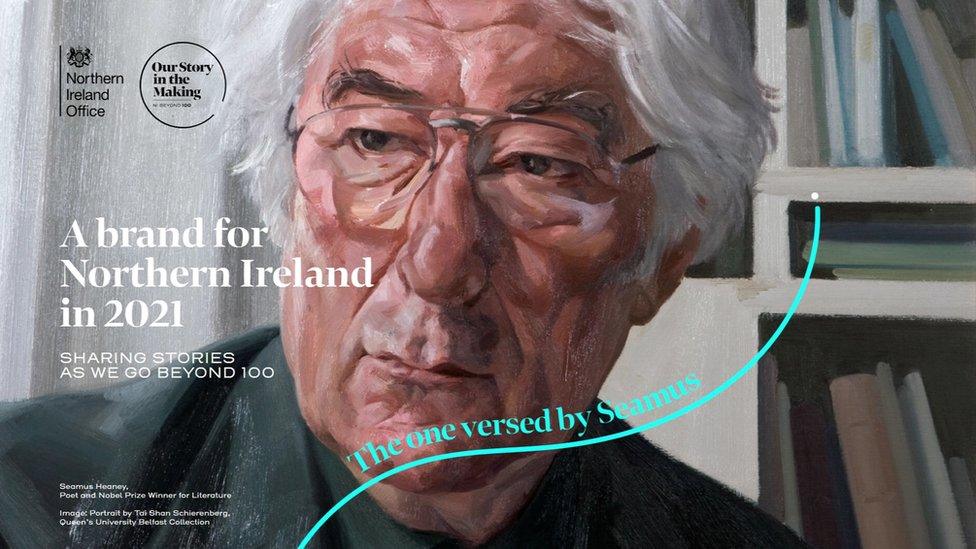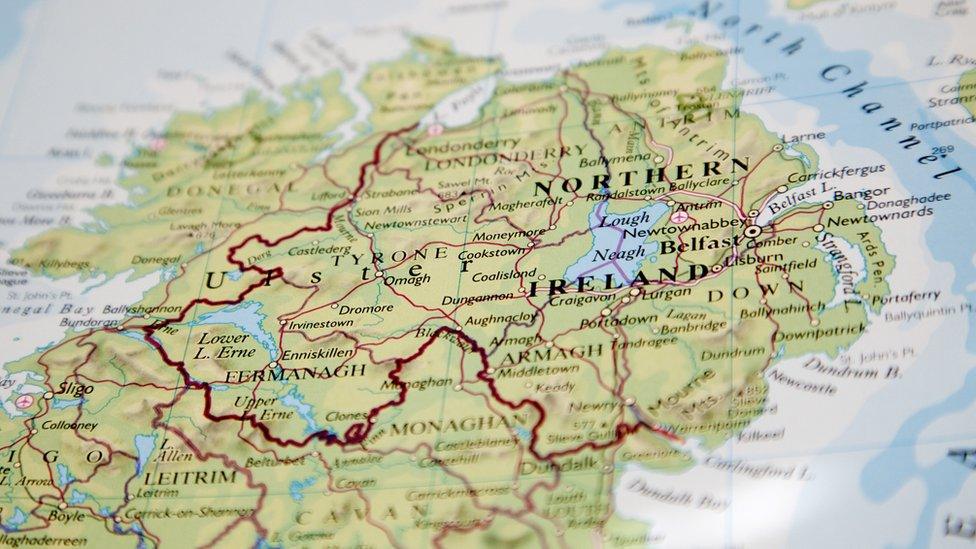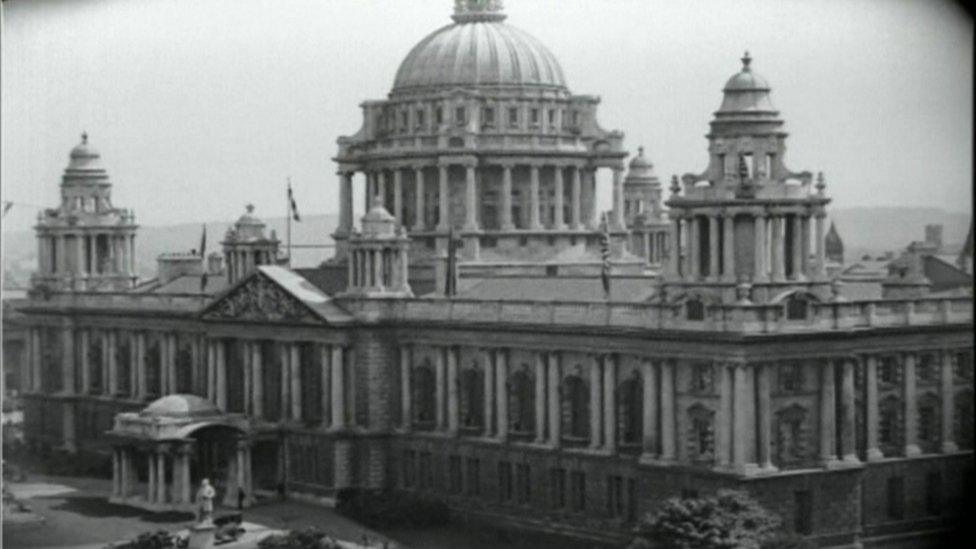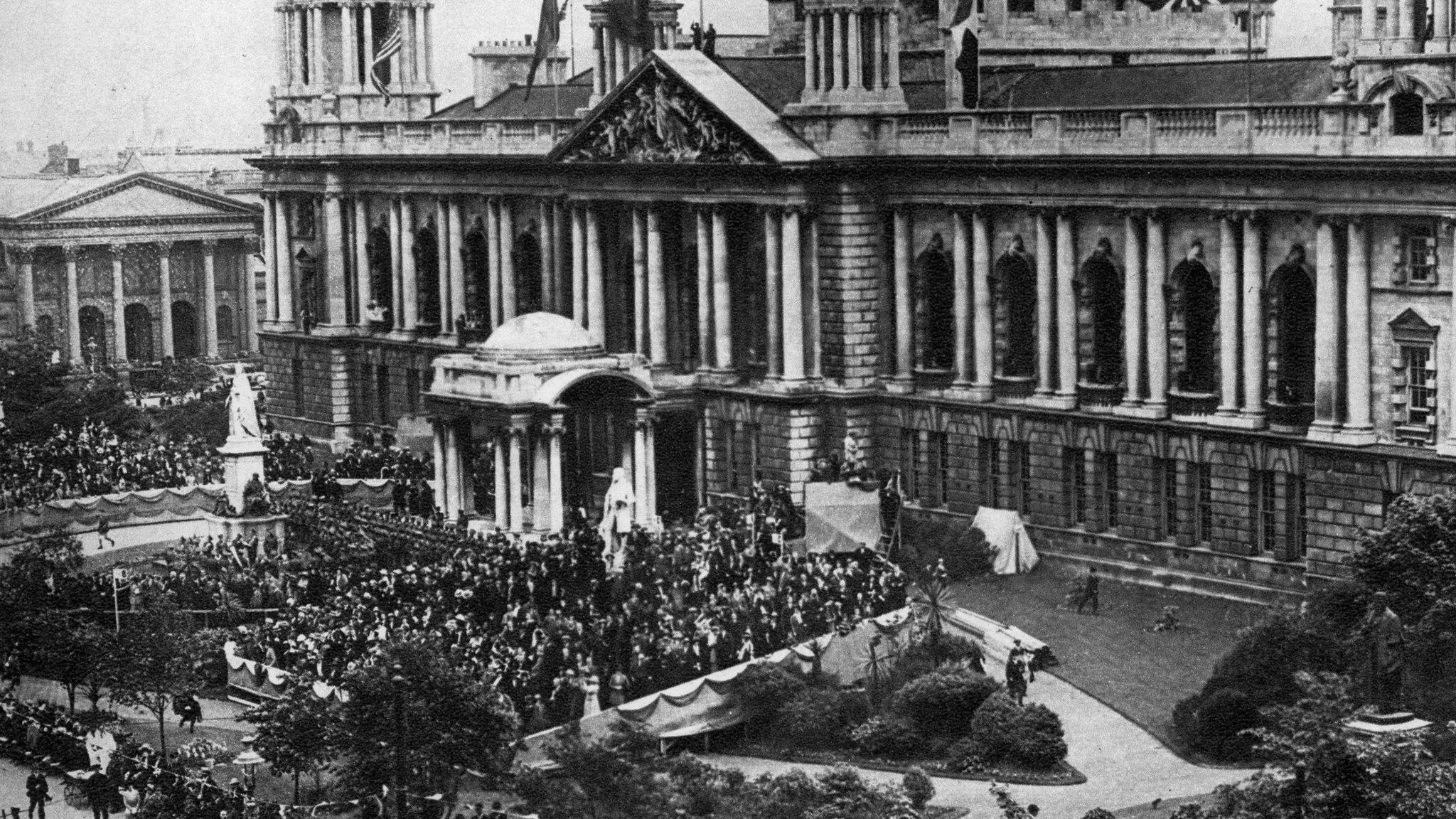Seamus Heaney Centre 'did not give permission' to use poet's image
- Published

A painting of Seamus Heaney is among the images chosen to promote the centenary commemorations
The director of the Seamus Heaney Centre at Queen's University, Belfast, has said he did not give permission for an image of the late poet to be used in a government marketing campaign.
The Northern Ireland Office (NIO) used it on a website promoting events to mark the centenary of Northern Ireland.
The NIO said it gained permission from Queen's to use the image of Heaney.
Queen's press office was contacted by BBC News NI to clarify the issue but the university declined to comment.
In a letter to the Irish Times newspaper, the director of the Seamus Heaney Centre at Queen's, Prof Glenn Patterson, insisted that the permission did not come from him.
"The Seamus Heaney Centre does not own the portrait of Seamus Heaney that the Northern Ireland Office has used in its Telling Our Stories: NI Beyond 100 campaign," he wrote.
"The centre could not have given permission for its use and even if it could have, would not have done so - nor would it do anything that involved Seamus Heaney's name - without first consulting the Heaney family."
The NIO insists that permission from the university was granted.
A spokesperson for the NIO said: "Our Story in the Making: NI Beyond 100 was created to recognise the stories of the people of Northern Ireland from all communities, past and present.
"Permission for use of the Seamus Heaney portrait was granted by Queen's University Belfast, who hold rights to the portrait."
The image of Heaney, who won the 1995 Nobel Prize for Literature, is one of a number of pictures used as part of the NIO campaign, which began earlier this month to promote the centenary.
'A place struggling with its own identity'
The SDLP leader Colum Eastwood MP criticised the use of the poet's picture.
He told the Belfast Telegraph: "Heaney's significant body of work belongs to everyone on this island.
"It is his account of life in a place struggling with its own identity and it would be wrong, therefore, to attempt to associate his image with a particular political narrative."
However, a number of unionists criticised Mr Eastwood, including the DUP leader Arlene Foster who said he should show more political generosity.
Seamus Heaney died in 2013, aged 74.
Related topics
- Published21 December 2020

- Published21 December 2020

- Published14 December 2020
